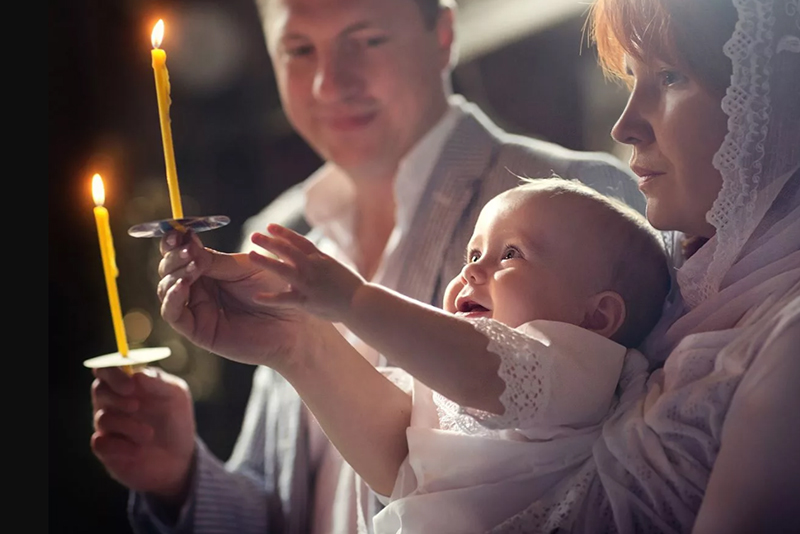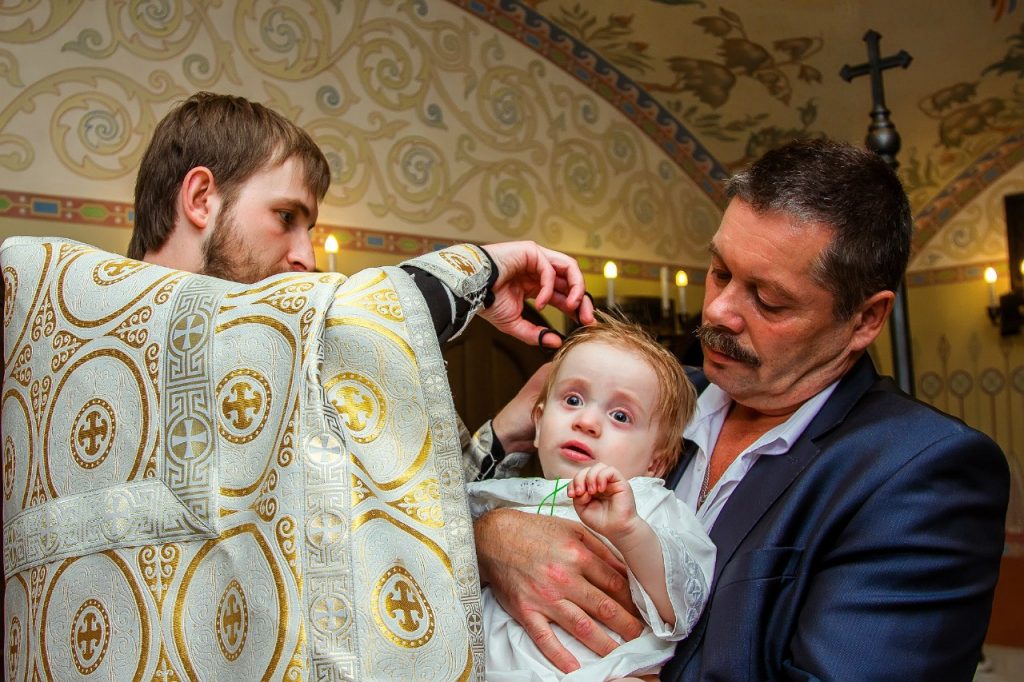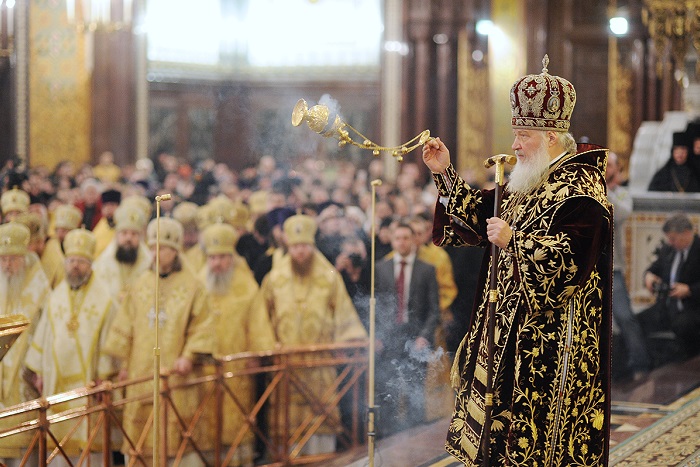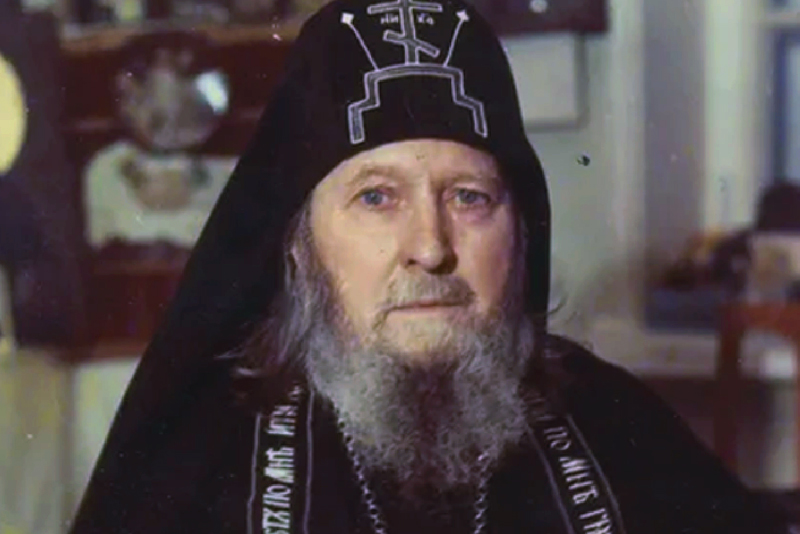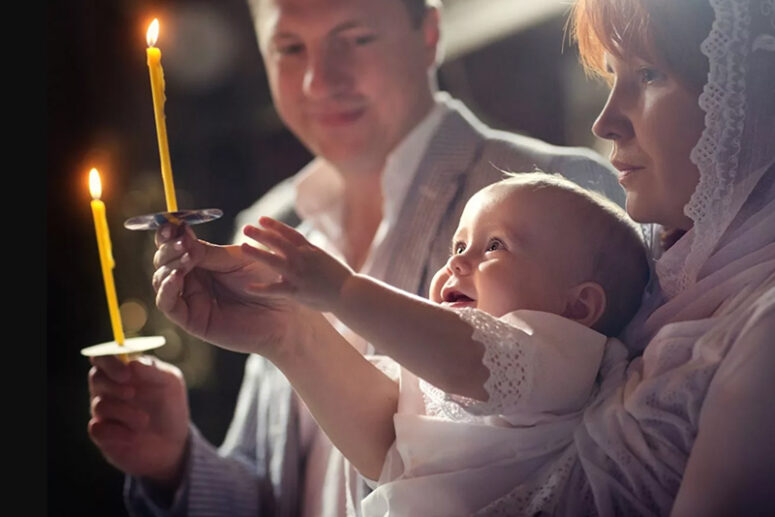
In Orthodox theology, the sacrament of Baptism is traditionally viewed from three sides: as a second birth of a person in a renewed nature (1), as deliverance from all personal sins and original sin (2), as introducing the baptized person to the Church (3). Of course, the division between these actions of grace in the sacrament of Baptism are rather provisional. Reviving a person in Baptism, God cleanses him from all sin. Such a sanctified and renewed person then becomes a member of the Church, a child of God and heir to His kingdom.
1. Baptism revives and restores man in his nature, which was attested by the Lord Jesus Christ Himself in His dialogue with Nicodemus: “Very truly, I tell you, no one can enter the kingdom of God without being born of water and Spirit. What is born of the flesh is flesh, and what is born of the Spirit is spirit ”(John 3: 5-6). St John Chrysostom notes that Baptism is a completely new way of creation, through which something is born in a person that was not present in him before baptism. Saint Theophan the Recluse taught something similar: “In the Sacrament of Baptism, the power of the spirit, its dominion over the soul, and through it, the command over the body is restored by the grace of the Holy Spirit” (Thoughts for Each Day of the Year).
St Paul the Apostle offers a similar hierarchy of human nature, consisting of body, soul and spirit. (1 Cor. 15: 45-49) According to it, the body must submit to the soul, and the soul must obey the spirit. Ultimately, the spirit must guide both body and soul. The body is understood as our physical self, the soul is our sensory-emotional component, and the spirit is the part of us that makes it possible for us to turn to God. The loss of spirit by man after the Fall resulted in confrontation between his soul and body and the consequent damage to the image of God in him. The apostle Paul describes this state in the following way: “All of us once lived among them in the passions of our flesh, following the desires of flesh and senses, and we were by nature children of wrath, like everyone else” (Eph. 2: 3).
In Baptism, a person receives the Spirit of God, which gives him the opportunity to live according to the spirit, and not according to the flesh, thereby restoring him to his original state. (Rom. 8) Obviously, the opportunity to commit sin remains even after Baptism, because sin is not a consequence of nature, but of will. However, Baptism frees the will from slavery to sin, as St John Chrysostom says: “In our previous state of our old selves, we were dead; and now we have become that which we were not… By that creation we were called to life, by this we have, over and above, our well being” (4th Conversation on the Epistle to the Ephesians).
2. Baptism cleanses and justifies a person from all sin. The aforementioned conversation of the Savior with Nicodemus affirms the cleansing from original sin taking place during Baptism. It tells us that being born according to the flesh we have inherited impurity, and only having been born in the Spirit we can enter the kingdom of God.
An even more direct indication of this can be found in the Acts of the Apostles: “Repent, and be baptized every one of you in the name of Jesus Christ so that your sins may be forgiven…” (Acts 2:38). Baptism, according to St Paul, essentially repeats the death and Resurrection of Christ: “In him also you were circumcised with a spiritual circumcision, by putting off the body of the flesh in the circumcision of Christ; when you were buried with him in baptism, you were also raised with him through faith in the power of God, who raised him from the dead. And when you were dead in trespasses and the uncircumcision of your flesh, God made you alive together with him, when he forgave us all our trespasses…”(Col 2.11-13)
The Holy Martyr and Philosopher Justin notes that there is no other way to forgiveness of sins, except through Baptism: “You must strive to know the way by which you can attain remission of sins and receive the hope of the inheritance of the promised benefits. There is no other way to do this except by knowing Christ and being washed in baptism for the remission of sins, and then living a sinless life” (Dialogue with Trypho).
It should be noted here that this refers not only to baptism with water. The Church, based on the words of the Savior: “Ye shall drink indeed of my cup, and be baptized with the baptism that I am baptized with” (Matthew 20:23), recognizes the so-called Baptism in blood. It means that a person who was not baptized with water, but suffered for Christ, is considered baptized and receives all the gifts of the Holy Spirit, given during baptism by water. Moreover, those baptized in blood become holy martyrs for Christ. Thus, the first saints of the Christian Church were the babies of Bethlehem, who suffered for the Lord before the beginning of his ministry.
3. Through Baptism, a person becomes a member of the Body of Christ, i.e. His Church. There are most direct and unambiguous indications of this fact in the New Testament, which do not require additional clarification: “…for in Christ Jesus you are all children of God through faith. As many of you as were baptized into Christ have clothed yourselves with Christ. There is no longer Jew or Greek, there is no longer slave or free, there is no longer male and female; for all of you are one in Christ Jesus.”(Gal. 3: 26-28); “For in the one Spirit we were all baptized into one body — Jews or Greeks, slaves or free — and we were all made to drink of one Spirit” (1 Cor. 12:13).
It follows from the Holy Scriptures that the Body of Christ is an assembly of those who believe in Him, united by one Spirit, one Baptism and one faith in One God. Introducing us to His Body and making us part of His Church, the good God, Who is Love (John 4:16) makes it possible for us to abide in eternal love both on earth and in the life of the age to come. From the moment the Church was established, the Lord remains with her forever (Matt. 28:20). Being present among the believers (Matt. 18:20) and uniting them in the Eucharist, He allows them to abide in Him and Himself abides in them (John 6:56).
To this end, the only way to become a member of the Church is to participate in the Sacrament of Baptism, established by the Lord Himself and to follow His commandment that all nations be baptized and become part of His Body (Matt. 28: 19-20). Baptism is a prerequisite for salvation (Mark 16:16), and therefore the commandment to baptize all nations is directly related to God’s desire to save every person (Ezek. 33:11).
It is worth remembering, however, that although the grace given at Baptism is irrevocable, in order not to fall away from the Church after Baptism, it is necessary to confess the faith set forth in the Nicene-Constantinopolitan Creed, lead a Christian life, and participate in the Sacraments of the Church.
We conclude this article with a quote by St Cyril of Jerusalem, revealing all the inner significance of Baptism: “Great is Baptism. It is an atonement of captives, an absolution of sins, death of transgressions, rebirth of the soul, a garment of light, a holy and indestructible seal, a chariot to heaven, a consolation of heaven, an intercession of the kingdom and a gift of adoption” (Catechetical Instruction).
Baptism products made with love in prayer at our Convent can be found here.

